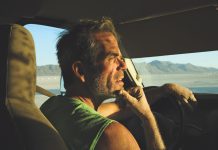Free-Divers Risk Peril by Pushing the Limit

My yoga instructor, Kyuri Lin, an exceptionally fit 28-year old, is thin, muscular and can hold extreme yoga positions for extreme amounts of time. She hangs with a group of other 20 and 30-somethings who are equally fit yoga obsessives. For fun, they hike through the High Sierra and to the base of the Grand Canyon. They do so as easily as the rest of us take our kids to summer camp.
They also sojourn to various Channel Islands, Catalina obviously being most prominent. They hike all over these too and engage in water sports, SUPs, kayaks, snorkeling and free diving. They are very practiced and very proficient.
A few Sundays ago, they went free diving off Crystal Cove State Beach. Several swam several 100 yards out to a verdant rock formation that is about 40 feet deep. No problem. Forty feet was nothing. They were used to it. Swim slowly out, check mask, snorkels, fins, then hyperventilate like crazy and dive. Some are so fit they can stay down longer than three or even four minutes.
Except that day Wesley Kim, aged 28, and in the height of his physical prowess, did not surface. At first the others thought nothing of it. They assumed he had surfaced, hyperventilated again, and dove back down. But after a few minutes, they knew something terrible had occurred and within minutes lifeguards had arrived.
Eventually, the young man was discovered. He was dead. The ER called it death by drowning.
This reminded me of another tragedy off my beach, Divers Cove, which occurred in 2011. Another free diver, Andrew Breslin, also in peak condition, but going alone, went spear fishing (it was allowed then) about an hour before sunset and he never returned. He was found about 10 feet down entangled in kelp. Though he usually carried a knife strapped to his ankle, that evening he had left it in the car. The local community took it as a warning. Never dive alone and always triple check your gear. Leave nothing to chance. Bring your knife as you never know if or how it might be necessary. (At the time, I thought being caught in the kelp seemed iffy. Any experienced diver knows how to avoid it and if caught, how to untangle oneself, except if you panic. If you panic, you die.)
By chance, a few days after that, I ran into my “knows everything about the ocean” friend Greg MacGillivray, who said the death probably was not due to entanglement in the kelp. He said it was something else, something associated with passing out suddenly, without warning, in shallow water, and then drowning.
After Kyrui’s friend died, I looked into the phenomenon called shallow water drowning (SWD). I’ve been an ocean person all my life, thought I knew most ocean dangers and found my own lack of knowledge about SWD frightening.
I bring all this up because the latest fad in Laguna is snorkeling and free diving. Ever since our waters became no-fishing zones, they’ve become ecologically diverse again, alive with hundreds of species and increasingly attractive for divers.
Here is how SWD works: before you dive, you do something intuitive. You hyperventilate. You believe it will fill your lungs with excess oxygen and allow you to dive longer. What you do not know is your lungs already are 98% efficient and hyperventilating does little. In fact, it causes your lungs to expel oxygen in order to maintain a proper level of CO2. You think you are doing one thing, but you are doing the opposite.
Then you dive and as my 20-year old son says, you hit an “I-gotta-breath-now” limit, which every testosterone-filled fit young man wants to beat. So he keeps going.
It is on the ascent, between 10 or 15 feet of the surface, that disaster happens. Without any warning whatsoever, you blackout. It has to do with body chemistry on the way up and at that particular depth. Once unconscious, though, your body’s automatic functions take over, including breathing. But instead of air, you suck in water. Then you die. It is quick. Drowning victims can go as long as eight minutes before they die because of unused reservoirs of oxygen in their body. But with SWD, all that oxygen already is depleted.
Even if you are young, strong, vibrant and really know the ocean, one missed fact can kill you. The fact isn’t well known in part because of a lack of statistics. ER’s normally only state death by drowning, neglecting to mention specifically how people drowned.
So pass around this column. Prior to diving, take one or two deep breaths, but no more. And do not attempt stupid macho games about how long you can stay down, or how deep.
Have fun. Just don’t be stupid.




